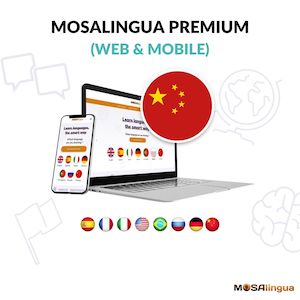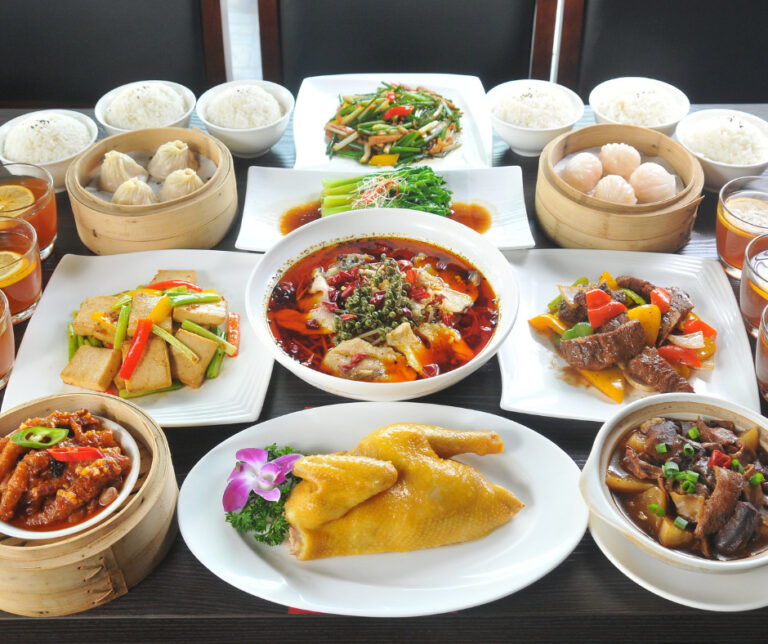If you’ve embarked on a mission to learn Chinese, then this article is for you! In it, you’ll find lists of some of the most useful Chinese words for a variety of situations. Learning any language is made easier with context, so we’ve provided you with common Chinese phrases and words that you’ll need for traveling, tourism, emergencies, and more.

Foundations: Start Mastering Basic Chinese Words
Learning Chinese vocabulary is only one (albeit very important) aspect of communicating in this language. If you’re learning Mandarin, it’s best to start with basic Chinese words first.
In the vocabulary lists we’ve compiled, we’ve included the pinyin transcription, which can help you nail Mandarin pronunciation, in addition to the English translation.
However, a simple tonal error in spoken Chinese can transform the meaning of your words! So we encourage you to search for quality recordings of Chinese pronunciation and train yourself to repeat what you hear. You can use the online dictionary Forvo to search for audio clips of words you’re uncertain about.
It’s a good idea to start listening to spoken Chinese as early as possible because the language is so different from English.
Greetings
Salutations are the central aspect of beginning any new conversation. In general, people simply won’t speak to you if you don’t approach them with a minimum of courtesy. So knowing how to greet someone is very important!
Keep in mind that these phrases are just the basic Chinese words that you’ll need if you’re traveling or having a conversation with a native speaker. These are, in our opinion, the most important Chinese words to know.
| English | Mandarin | Pinyin Transcription |
|---|---|---|
| Hello | 你好! | Nǐ hǎo! |
| Hello (polite) | 您好! | Nín hǎo! |
| Hello (to more than one person) | 你们好 | Nǐ men hǎo |
| Good evening | 晚上好! | Wǎn shang hǎo! |
| Goodnight | 晚安 | Wǎn ān |
| Goodbye | 再见! | Zài jiàn! |
| See you later | 回见 | Huí jiàn |
| How are you? (informal) | 你好吗? | Nǐ hǎo ma? |
| I'm very well. Thank you! | 我很好。谢谢你! | Wǒ hěn hǎo. Xiè xie nǐ! |
| What's your name? | 你叫什么名字? | Nǐ jiào shén me míng zi? |
| My name is… | 我是… / 我叫… | Wǒ shì… / Wǒ jiào… |
If you’re a tourist, 您好 and 你好吗? are the two most simple ways to say “hello” and “how are you?” However, they are both fairly formal. As you begin to master the foundations of Mandarin vocabulary, you can branch out and use other manners of greeting people.
Start improving your Chinese today
Good news: we can help!
More good news: you can get started for free! With your free trial, you can test drive the most effective way to learn Mandarin Chinese for the next 15 days!
Vocabulary flashcards, videos with subtitles, audiobooks, articles adapted to your level – with MosaLingua Premium (Web & Mobile), you’ll have access to all this and more. Get started right now. It’s free—and risk-free—to try!
Polite phrases
| English | Chinese | Pinyin |
|---|---|---|
| Please | 请问 | Qǐng wèn |
| Thank you | 谢谢 | Xiè xie |
| You're welcome | 不用谢 | Bú yòng xiè |
| Pardon/Excuse me | 对不起 | Duì bu qǐ |
| Good luck! | 祝你好运! | Zhù nǐ hǎo yùn! |
| I'm sorry. | 对不起。 | Duì bu zhù. |
| It's not a big deal. | 没关系。 | Méi guān xi. |
Important Chinese words for a first conversation
This is not meant to be an exhaustive Chinese travel guide, but rather a quick reference of the most common Mandarin phrases to prepare you for a successful first conversation. You won’t get very far without some of these everyday phrases, so this kind of focused vocabulary list can be very useful!
| English | Chinese | Pinyin |
|---|---|---|
| I don't understand (anything).* | 我听不懂。 | Wǒ tīng bù dǒng. |
| I don't understand (what you're saying).** | 我不明白。 | Wǒ bù míng bai. |
| Could you repeat, please? | 请您再说一次? | Qǐng nín zài shuō yī cì? |
| I don't know how to speak Chinese. | 我不会说中文。 | Wǒ bù huì shuō zhōng wén. |
| I don't speak Chinese well. | 我的中文不太好。 | Wǒ de zhōng wén bú tài hǎo. |
| Speak slower, please! | 请讲慢一点! | Qǐng jiǎng màn yī diǎn! |
| I am learning Chinese. | 我在学习中文。 | Wǒ zǎi xué xí zhōng wén. |
| What does that mean? | 这是什么意思? | Zhè shì shén me yì si? |
| What is that/this? | 这是什么? | Zhè shì shén me? |
| What is your nationality? | 你是哪国人? | Nǐ shì nǎ guó rén? |
| I am American. | 我是美国人。 | Wǒ shì měi guó rén. |
*This phrase means that you didn’t understand a word someone said. This would be useful if it’s the first time you’re going to China and you haven’t learned much of the language yet.
**On the other hand, this phrase simply means that you didn’t catch a word or you missed a detail, but that you would like to continue the conversation in Chinese.
Family
Talking about your family in Mandarin can be very interesting. Each person has their own identifying name that reflects their specific place in the family tree.
You wouldn’t talk about simply your “brother” for example, but rather your “big brother” or your “little brother.” The same idea extends to grandparents – you must specify whether you’re talking about the maternal or paternal side because there are special names for each. Every person has a particular name for their role in the family.
Here, you’ll find a Chinese word list with the basic relationships.
| English | Chinese | Pinyin |
|---|---|---|
| family | 家庭 | jiā tíng |
| family members | 家人 | jiā rén |
| (the) mother | 母亲 | mǔ qīn |
| Mom | 妈妈 | mā ma |
| (the) father | 父亲 | fù qin |
| Dad | 爸爸 | bà ba |
| child/children | 孩子 / 孩子们 | háizi / háizimen |
| daughter | 女儿 | nǚ ér |
| son | 儿子 | ér zi |
| little brother | 弟弟 | dì di |
| big brother | 哥哥 | gēge |
| little sister | 妹妹 | mèimei |
| big sister | 姐姐 | jiějie |
| husband | 丈夫 | zhàngfū |
| wife | 妻子 | qī zi |
| stepmother | 后妈 | hòu mā |
| stepfather | 后爸 | hòu bà |
| step-brother | 继兄弟 | jì xiōngdì |
| step-sister | 继姐妹 | jì jiěmèi |
Of course, there are also cousins, aunts, uncles, in-laws, nieces, and nephews. But as I mentioned above, they’ll all have their own specific name. It depends if they are on your mother’s side or your father’s side, and if they are older or younger than you.
For example, your maternal aunt (for this example, let’s say the wife of your mother’s brother) will have a totally different name than your paternal aunt (your father’s little sister).
It is easiest to learn them (and use them) little by little, depending on your needs. Start with each of the roles in your own family. That way you can ease into it. And don’t worry – even native speakers get tripped up sometimes!
Food and drink
Here you’ll find one of the most important Chinese vocabulary lists (in our opinion!). To learn more about the names of specific fruits, vegetables, and condiments, and how to order food in a restaurant, be sure to download our Mandarin app.
| English | Chinese | Pinyin |
|---|---|---|
| fruits | 果实 | guǒ shí |
| vegetables | 蔬菜 | shū cài |
| meat | 肉 | ròu |
| fish | 鱼 | yú |
| noodles | 面条 | miàn tiáo |
| rice | 米饭 | mǐ fàn |
| I'm hungry! | 我饿了! | Wǒ è le! |
| I'm thirsty! | 我口渴! | Wǒ kǒu kě! |
| breakfast | 早饭 | zǎofàn |
| lunch | 午饭 | wǔfàn |
| dinner | 吃晚饭 | chī wǎnfàn |
| chopsticks | 筷子 | kuài zi |
| It's very good! | 很好吃! | Hěn hǎo chī! |
| Bon appétit!*** | 开动! | Kāi dòng! |
| Cheers! | 干杯! | Gān bēi! |
| What would you like to eat? | 你想吃什么? | Nǐ xiǎng chī shénme? |
| What would you like to drink? | 你想喝点什么? | Nǐ xiǎng hē diǎn shénme? |
*** 开动! literally means “Attack!” It’s used in Chinese as an equivalent to “bon appétit” or “dig in!” when it’s time for everyone to eat.
Dates and times
Giving the date and time in Chinese is fairly straightforward. All you need to know are the characters or pinyin for the words “day” and “month,” as well as the numbers in Chinese. Everything stems from those terms. Here is the basic vocabulary you’ll need.
| English | Chinese | Pinyin |
|---|---|---|
| day | 日 (formal) / 号 (informal) | rì / hào |
| month | 月 | yuè |
| year | 年 | nián |
| week | 星期 | xīngqī |
| Monday | 星期一 | xīngqī yī |
| Tuesday | 星期二 | xīngqī èr |
| Wednesday | 星期三 | xīngqī sān |
| Thursday | 星期四 | xīngqī sì |
| Friday | 星期五 | xīngqī wǔ |
| Saturday | 星期六 | xīngqī liù |
| Sunday | 星期日 | xīngqī rì |
| January | 一月 | yī yuè |
| February | 二月 | èr yuè |
| March | 三月 | sān yuè |
| April | 四月 | sì yuè |
| May | 五月 | wǔ yuè |
| June | 六月 | liù yuè |
| July | 七月 | qī yuè |
| August | 八月 | bā yuè |
| September | 九月 | jiǔ yuè |
| October | 十月 | shí yuè |
| November | 十一月 | shíyī yuè |
| December | 十二月 | shí’èr yuè |
| What time is it? | 现在几点? | Xiànzài jǐ diǎn? |
| time | 点 | diǎn |
| today | 今天 | jīntiān |
| yesterday | 昨天 | zuótiān |
| tomorrow | 明天 | míngtiān |
| morning | 上午 | shàngwǔ |
| noon | 中午 | zhōngwǔ |
| afternoon | 下午 | xiàwǔ |
| evening | 晚上 | wǎnshàng |
Most common Chinese verbs
Some verbs can be used very differently depending on their context. For example, “can” in English might have three different uses: to be capable of doing something, to ask permission, or even as a synonym for “willing to do something.” In Mandarin, there are three unique characters to describe these situations.
Auxiliary verbs
- to be – 是 shì / to be someplace – 在 zài
We use 是 when talking about things like nationality or occupation.
For example: 我是美国人 (wǒ shì měi guó rén), means “I am American.”
In Chinese, you won’t place the verb “to be” before an adjective. Instead, you’ll use another adjective. For example, “to say “he is tall,” you’ll say “he – (very) – tall.”
Finally, to specify your location, you’ll use 在 (zài), as in 我在学校 (wǒ zài xué xiào), literally, “I – to be at – school.”
- to have – 有 yǒu
Unlike 是 and other verbs, the negation of 有 is done with 没, as in 没有 (méi yǒu). What’s more, it’s never used with an adjective, but rather to express possession.
For example, to say “I’m hungry,” you’d say 我饿 (wǒ è), literally “I – (to have) hunger.”
The same is true for giving your age in Chinese – you’ll say “I – 25 – years.”
Modal verbs
- to want – 想 xiǎng (in the sense “I’d like…”) / 要 yào
- can – 会 huì (capability) / 能 néng (possibility) / 可以 kě yǐ (permission)
会 is also used in the context of having special skills or training. 能 is used in the sense of being willing to do something. And finally, 可以 is used in cases of asking or giving permission to do something. For example:
Can you (= do you know how to) speak Chinese? – 你会说中文吗?Nǐ huì shuō Zhōngwén ma?
I can (= it’s possible for me to) come on Saturday – 我星期六能来 Wǒ xīngqíliù néng lái
I can (= it’s allowed; my parents gave me permission) come on Saturday – 我星期六可以来 Wǒ xīngqíliù kě yǐ lái
- have to/must – 得 děi
Common regular verbs
| English | Chinese | Pinyin |
|---|---|---|
| to make (to create) | 做 | zuò |
| to watch | 看 | kàn |
| to take (with you) | 带 | dài |
| to take (with your hands) | 拿 | ná |
| to know (to understand) | 知道 | zhī dào |
| to know (to be acquainted with) | 认识 | rèn shi |
| to go | 去 | qù |
| to think (to be of a certain opinion) | 认为 | rèn wéi |
| to sell | 卖 | mài |
| to buy | 买 | mǎi |
| to study | 学习 | xuéxí |
Travel
Again, in our opinion, this is another list of important Chinese words that we hope you’re able to make use of!
| English | Chinese | Pinyin |
|---|---|---|
| to travel | 旅行 | lǚ xíng |
| luggage | 行李 | xíng lǐ |
| departure/arrival | 出发 / 到达 | chū fā / dào dá |
| passport | 护照 | hù zhào |
| plane ticket | 飞机票 | fēijī piào |
| boarding pass | 登机证 | dēng jī zhèng |
| ticket machine | 取票 | qǔpiào |
| Where are you going? | 你要去哪里? | Nǐ yào qù nǎlǐ? |
| (the) car | 汽车 | qì chē |
| (the) metro | 地铁 | dì tiě |
| (the) plane | 飞机 | fēijī |
| reserve a hotel room | 订房 | dìng fáng |
In case of emergency
And just in case…
| English | Chinese | Pinyin |
|---|---|---|
| Be careful! | 小心 | xiǎo xīn |
| Help! | 救命 | jiù mìng |
| Can I borrow your phone, please? | 我可以借你的电话吗? | Wǒ kě yǐ jiè nǐ de diànhuà ma? |
| It hurts here. | 我这里疼。 | Wǒ zhè li téng. |
| I have to go to the hospital. | 我必须去医院 。 | Wǒ bì xū qù yī yuàn. |
| I'm sick. | 我病了。 | Wǒ bìng le. |
| Where is the pharmacy? | 药店在哪里? | Yào diàn zài nǎ lǐ? |
| Can I see a doctor? | 我可以看医生吗? | Wǒ kě yǐ kàn yī shēng ma? |
How to Learn Chinese Words
If you want to learn new Chinese words and phrases efficiently, you’ll have to memorize the foundations. To start, you can use our Chinese vocabulary app.
Study both the characters and pinyin at the same time. If you plan to go to China, you’ll need to be able to recognize and read the characters. As for pinyin, that will help you type words on a keyboard. Once you’ve learned words, use them in context as much as possible!
And remember – just because we use the word “study” doesn’t mean this has to be boring! Find a way to make the process fun for you: work on drawing characters as you learn them (because the order does matter!), watch videos or films, chat with language partners, etc.
Whatever you do, just make sure that you’re enjoying the learning process!
A few tips for learning Chinese words and phrases
Now, the question is: how can you integrate learning into your daily life (and also keep it fun)? Here are a few ideas to get you started:
- Stick post-it notes on different objects while you’re learning their names in Mandarin. If you’re working in words for animals or family members, just stick the note on a photograph! Seeing words regularly and associating them visually with the object they represent is a very effective technique.
- Once you’ve learned basic Chinese vocab, we strongly recommend that you get out there and find a conversation partner. You can even ask them to incorporate the words you’re learning into your conversations.
- Finally, listen to podcasts, music, and books on tape, watch movies or short videos, read books, etc. The more exposure you give yourself, the more your vocabulary will grow!
Next Steps
If you enjoyed this article, be sure to check out:



![10 Common Spanish Travel Phrases to Know for Traveling [VIDEO]](https://www.mosalingua.com/en/files/2016/05/4-2-300x150.jpg)



Comments